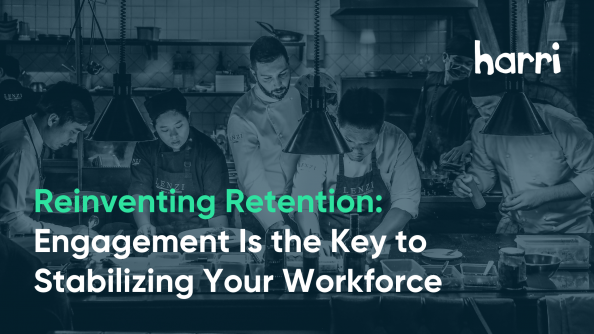The New UK People Platform Imperative: Navigating Compliance Risk and Cost with Intelligent Workforce Management

- By Harri Insider Team | November 14, 2025
Executive Summary
The UK hospitality sector is currently facing a ‘perfect storm’: unprecedented wage and indirect cost inflation (National Insurance), alongside fundamental legislative shifts driven by the Employment Rights Bill (ERB). As discussed at our recent HR breakfast roundtable, these pressures are forcing operators to address a critical flaw in their business models: fragmented people technology and reactive management.
The days of operating with a simple staffing tool are over. Compliance is no longer an HR administrative burden; it is a P&L risk that requires an integrated, intelligent, and proactive Workforce Management platform. The challenges identified by industry leaders are clear, pointing to an urgent need for technological solutions that tie productivity directly to compliance.
1. The Operational Cost and Compliance Paradox
Industry leaders are grappling with the reality that efforts to manage spiralling wage costs are being undermined by new legislation that penalises flexibility and operational ambiguity.
- The Cost-Driven Workforce: The immediate concern is the base cost of labour, compounded by recent tax changes. As one hotel representative noted, “I’m more concerned about zero hour contracts and because our business is up and down… As soon as [minimum wage] bumps, then it bumps your cost.” The industry is struggling to reconcile the reliance on flexible contracts with a mandate to reduce overhead.
- The Administrative Nightmare of Guaranteed Hours: The impending right to guaranteed hours represents a massive new administrative and legal burden. The consensus is that manual processes cannot cope. As an HR consultant highlighted, calculating the right to guaranteed hours will require flawless data tracking:
“You do that with everybody, which would wear your tech, your scheduling, your process, your system, your data is going to be really essential to make sure that you use that appropriately.”
- Risk in Flexibility: Even common, on-the-spot operational decisions now carry hidden legal risks. Managers letting staff go home early to save money, or using group messages to cover shifts, introduce ambiguity that future regulation will penalise. A manager raised the critical question:
“Quite often you’ve got five or six people on a shift, it’s quiet, the manager will say, ‘Does anyone want to go home?’… is there any risk to us now?”
2. The Burden of Fragmented Technology and Managerial Inefficiency
A significant barrier to overcoming compliance and cost challenges is the complexity of the current technology ecosystem and the subsequent pressure on frontline General Managers.
- Tech Stack Confusion: Many organisations have struggled to implement and connect disparate systems, leading to errors, inefficiency, and a lack of trust in data. A consultant specializing in people technology summarised the issue:
“I think at the moment most of the conversation we’re having with people is that they just don’t really know what’s out there… they’re trying to make things work and feed into each other, but they’re not necessarily working.”
- Rogue Rota Reality: The actual work on the floor rarely matches the planned schedule, complicating any effort to enforce new compliance laws like those governing guaranteed hours. A practitioner noted the reality of frontline operations:
“The rotor I used to write is never the rotor that actually was in the restaurant on the night. So, team swap shifts all the time. I wonder will that have to change?”
- The Untrained Managerial Gap: Reliance on General Managers to handle complex people issues is unsustainable and risky. The consensus is that HR needs to empower managers with tools, rather than administrative duties. The expert view was decisive:
“You need to put the right tools in place to make it easy for everybody to actually keep track on those things isn’t it… Managers need to be handling it. They can’t just be passing it to HR.”
3. Conclusion: The Mandate for an End-to-End People Platform
The imminent changes from the Employment Rights Bill, coupled with relentless wage pressure, turn the need for effective Workforce Management into a strategic imperative.
The current market environment demands a platform that is:
- Unified and End-to-End: Eliminating data silos from hiring (Talent Acquisition) through to scheduling and payroll to achieve a true single source of truth.
- Proactively Intelligent: Using AI-powered, hyper-granular forecasting (e.g., 15-minute intervals) to ensure efficiency is maximised and legal risks are flagged before a schedule is published.
- Proven: Backed by the experience and technology to navigate global compliance challenges, offering a reliable path forward for UK operators.
The time for reactive management and fragmented technology is over. Organisational success will be defined by the technology that seamlessly links profitability, productivity, and proactive compliance.
Next Steps
To learn how an integrated platform can turn the UK’s compliance challenge into a competitive advantage, please contact us for a confidential Risk Analysis and Savings Audit.





















